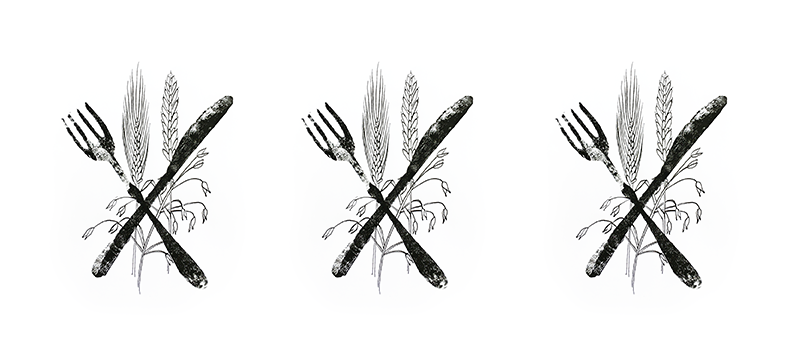Yet the experts say the percentage of food intolerances is not rising. So what’s going on?
Even rice cakes proclaim themselves ‘gluten-free’ on the label nowadays. Great. But actually, no big deal given that rice doesn’t contain gluten. ‘Gluten is a kind of protein found in wheat, barley and rye,’ says Harry Wichers, an allergy researcher at Fresh Foods & Chains. ‘Gluten-free diets are prescribed for people with coeliac disease. An estimated one per cent of the population suffer from this condition and they become very ill from the tiniest quantity of gluten. These people have an enzyme in their intestines that converts the gluten protein into another substance to which the immune system reacts so strongly that it damages the gut and causes intestinal symptoms and stunting growth. It is not easy to diagnose coeliac disease and it requires a biopsy to see the damage to the gut.’
For 98 per cent of our history we did just fine without gluten
There is another group of people with what is known as ‘non-coeliac gluten sensitivity’ (NCGS). Most of their symptoms are subjective and range from abdominal pain, diarrhoea and headaches to tiredness and poor concentration. These people find that their symptoms clear up if they don’t eat gluten. ‘We don’t yet know exactly what the underlying mechanism could be here, and it is sometimes dismissed as mainly in the mind,’ says Wichers. That is the so-called nocebo effect: the more you hear and read about a condition, the sooner you start thinking you might have it too. ‘I am not qualified to be the judge of that. But if people feel better, they should certainly stop eating gluten.’
There are other ingredients besides gluten that can cause bowel problems: the FODMAPS, or fermentable oligosaccharides, disaccharides, monosaccharides and polyols. These are carbohydrates found in grains, applies, onions, garlic and milk. They are indigestible for some people, so bacteria in the large intestine get to work on them, causing symptoms. Since they are found in products that also contain gluten, it can be difficult to determine the cause of the problem.
According to Wichers, a gluten-free diet can’t do any harm. ‘There are plenty of other foods that you can get fibre, protein and vitamins from. It’s good to realize that we’ve only been eating gluten since the emergence of agriculture, when we started growing grain. Before that we might have encountered the occasional bit of gluten, but for 98 per cent of our history, we did just fine without gluten.’ Conclusion: A gluten allergy is rare, but if you feel better on a gluten-free diet, go ahead.
We are bombarded daily with sometimes contradictory information. So what are the facts of the matter? In this feature, a WUR scientist answers your burning questions. Asking questions can make you wiser. Do you dare to ask yours? Email us at redactie@resource.nl

 Illustration: Marly Hendricks
Illustration: Marly Hendricks